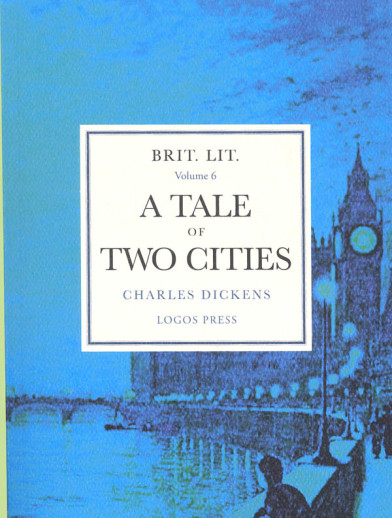I've probably read over half of these literature selections, plus I've looked at a lot of excellent literature courses, and I am still seriously considering working through this course on my own. What can that possibly mean? First of all, it means a well-constructed, whole-book literature course that starts with an intriguing collection of reading assignments. The ones I've already read are long-time favorites.Secondly, there are study questions which are challenging, steeped in critical thinking aspects as well as biblical/Christian worldview and begging for notetaking and thought recording. Then, there is the added challenge of a thorough poetry study that requires memorization and trying your own hand at poetry writing. Finally, laced through all of this is a subtle humor in the instructional presentation of historical and literary information, marginalia, and study questions that makes the appeal almost irresistible. I do wish this course had been available when I was homeschooling high school students.
Even though Brit Lit states it is for classical schools, it's easily adaptable for the homeschool setting, especially for independent work. The materials are all self-instructional, although both students and parents will benefit from related discussions. Answers provided reflect the breadth of content that should be included in the answer which means they provide both help for the evaluating parent and further insight for the student prepping for later tests. Reading selections are tasteful and thought-provoking. Almost all of the literature selections are provided in the course volumes with only two additional resources needed - The Hobbit and That Hideous Strength.While ten volumes sounds like a lot, it tends to make the course less intimidating and more manageable. Also, the independent volumes mean you can spread the cost of the course out, if you wish. All you need to get started is Volume 1 and 10 (and The Hobbit). You can add the other volumes as you go along.
Volumes are a handy 6" x 8" size with thicknesses dependent on content. And, frankly, they just feel good in your hands. Included in each non-consumable, paperback volume (Volumes 1-9) is a reading schedule, an introductory essay that highlights themes and offers a Christian perspective on the literary period and/or author covered, the daily readings with questions, and answers to the questions. Interesting and informative sidebar notes (i.e. marginalia) are present in all volumes but much more prolific in the earlier volumes. This has a dual purpose - first to provide explanations, context and important notes, and secondly to illustrate for students how to effectively annotate their own reading material.
The exception to this volume pattern is Volume 10 - The Poetry Workbook. This volume is a consumable worktext that is used throughout the course. Its 90 lessons include specific poetry selections, instructional content, introductions to various poets, memorization assignments, poetry writing assignments, and study guides for the volume tests and for the first semester and comprehensive finals. The course requires 200 lines of poetry to be memorized over the year but builds interest and insight into these selections with excellent instructional material, audio files that aid pronunciation, and accountability checklists. There are comprehensive end-of-volume tests that cover both the readings and the assignments from the Poetry Workbook. There is both a first and a second semester comprehensive final. These finals include memory work, quote completion, and literary essays.
While there is no teacher guide per se, teacher support material is easily downloaded and FREE from the Canon Press website. These downloads include Master Lesson Plans (i.e. Reading Plans), Beowulf and Canterbury Tales audio files (to aid with memorization pronunciation), printable tests, final exams, and answer keys. Basically, everything you or your student needs to round out the course.
With the first volume, you'll be ready to dig into this easy to use, yet challenging and totally thought-provoking classical literature course. Be prepared to emerge from it with a much broader and deeper understanding of the literature that has shaped who we are as an English-speaking people. ~ Janice


